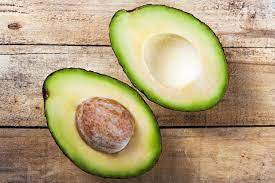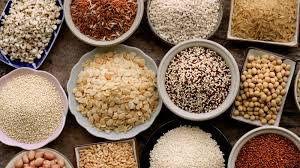Nourishing Your Body: The Top 10 Foods for a Healthy Vagina
Maintaining overall health and well-being is essential, and that includes paying attention to the health of your intimate areas.

1. Yogurt: Probiotic Powerhouse

Yogurt is rich in probiotics, which are beneficial bacteria that promote a balanced vaginal microbiome. Consuming probiotics can help prevent yeast infections and maintain a healthy pH level.
2. Cranberries: UTI Fighter

Cranberries are well-known for their role in preventing urinary tract infections (UTIs). They contain compounds that prevent harmful bacteria from adhering to the urinary and vaginal tract walls.
3. Sweet Potatoes: Vitamin A Boost

Sweet potatoes are packed with vitamin A, which supports the production of vaginal and cervical cells. A strong cell lining is vital for preventing infections.
4. Garlic: Natural Antibiotic

Garlic has natural antimicrobial properties that can help ward off yeast infections and maintain a healthy balance of vaginal bacteria.
5. Avocado: Healthy Fats

Avocado is a source of healthy fats that aid in hormone regulation. Hormonal balance is essential for maintaining vaginal moisture and elasticity.
6. Leafy Greens: Rich in Folate

Leafy greens like spinach and kale are rich in folate, a B vitamin that supports vaginal tissue health and can prevent birth defects during pregnancy.
7. Berries: Antioxidant-Rich

Berries like blueberries and raspberries are loaded with antioxidants that help fight inflammation and support overall immune function.
8. Whole Grains: Fiber-Filled

Whole grains like oats and brown rice are high in fiber, which aids in digestion and helps eliminate toxins from the body, potentially reducing the risk of vaginal infections.
9. Flaxseeds: Omega-3 Goodness

Flaxseeds are a great source of omega-3 fatty acids, which can help reduce inflammation and promote healthy vaginal tissues.
10. Water: Hydration is Key

Water is fundamental to overall health, including vaginal health. Staying hydrated ensures that your body produces adequate vaginal lubrication and maintains healthy moisture levels.
Remember that a healthy diet is just one aspect of vaginal health. Good hygiene practices, safe sexual practices, and regular gynecological check-ups are also crucial. If you experience persistent discomfort, itching, unusual discharge, or other vaginal issues, consult a healthcare professional for a proper diagnosis and treatment.

Incorporating these foods into your diet can contribute to overall vaginal health, but it's important to maintain a balanced and varied diet. Ultimately, taking care of your body through good nutrition, exercise, and proper self-care is the key to feeling your best, both inside and out.






_taxiing_at_Schiphol_(AMS_-_EHAM),_The_Netherlands,_18may2014,_pic-6.jpg)





0 Comments